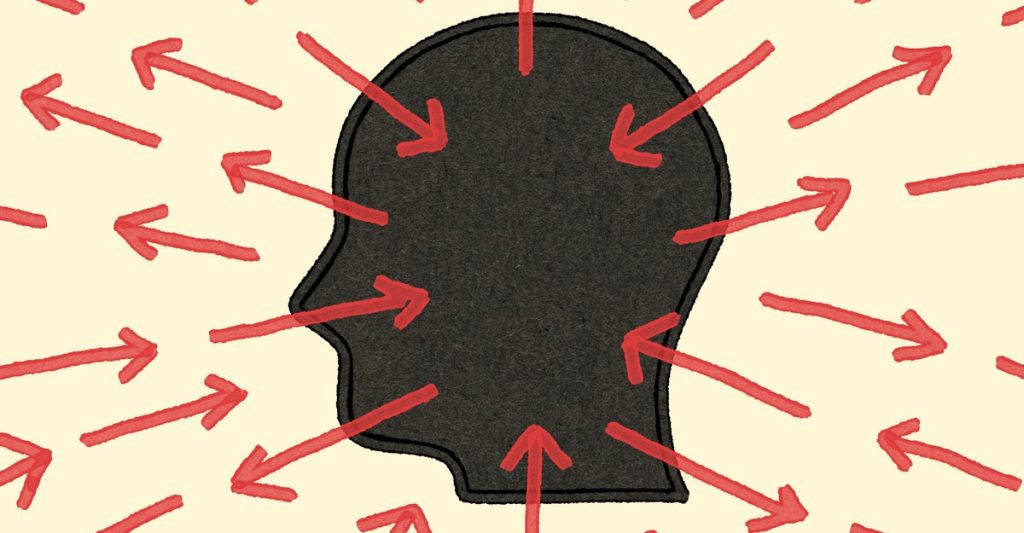The Life-Altering Diagnosis: Understanding ADHD and Its Impact
The revelation of being diagnosed with ADHD at the age of 37 was nothing short of a seismic shift in my life. For years, I had attributed my restlessness, fiery temper, and obsessive tendencies to my personality. These traits, while exhausting, were part of who I was—or so I thought. The diagnosis reframed these quirks as symptoms of a condition that could be managed. Treatment brought a sense of order to my chaotic thoughts, offering a newfound sense of control over my life. However, this diagnosis also unveiled a startling reality: ADHD is linked to a significantly shorter lifespan, a harrowing truth that has left me grappling with both fear and hope.
The Shocking Reality of Reduced Life Expectancy
A recent study analyzing the deaths of over 30,000 British adults revealed that ADHD is associated with a life expectancy reduced by nearly seven years for men and nine years for women. These findings place ADHD’s impact on lifespan on par with smoking and surpassing that of heavy drinking. Sharing this study with my husband, who also has ADHD, elicited a simple yet profound response: "Damn." Such a stark statistic is not just a personal wake-up call but a foreboding sign for the millions of Americans, particularly the growing number of children and adults being diagnosed with ADHD.
The Rising Prevalence of ADHD in America
As of 2022, approximately 7 million American children aged 3 to 17 had received an ADHD diagnosis at some point, marking an increase of 1 million from 2016. While ADHD is often associated with rambunctious children, the surge in adult diagnoses has been significant. This rise has met with skepticism, with some questioning the validity of recent adult diagnoses, especially those made through telehealth services. ADHD is often dismissed as a mild condition, akin to struggles with focus, rather than a serious mental health disorder. However, experts like Margaret Sibley emphasize that ADHD is "not as innocent as some people think it is."
The Hidden Dangers of Untreated ADHD
ADHD itself is not fatal, but its symptoms—such as inattention, emotional instability, and impulsivity—can permeate every aspect of life, leading to risky behaviors and poor health outcomes. Individuals with ADHD are more prone to substance abuse, unsafe sex, dangerous driving, and other reckless actions. They also face higher risks of depression, anxiety, and suicide. Furthermore, struggles with maintaining healthy habits like proper nutrition and exercise can lead to obesity and other chronic conditions. These challenges can snowball into broader issues, such as difficulty holding down a job, maintaining relationships, or even avoiding prison. Missing doctor appointments, forgetting medications, or navigating the healthcare system can exacerbate existing illnesses, turning childhood behavior problems into life-threatening consequences.
The Study’s Findings and Limitations
The recent study linking ADHD to reduced life expectancy is groundbreaking, as it is the first to directly quantify the impact of ADHD on lifespan. By matching diagnoses with death records, researchers estimated that ADHD could shorten life expectancy by 4.5 to 9.11 years for men and 6.55 to 10.91 years for women. While these findings are alarming, they are not without caveats. The study’s margin of error and potential biases in the study population, such as participants with additional health issues, may inflate the mortality risk. Moreover, the research does not clarify whether treatment mitigates these risks, as data on treatment was unavailable. Despite these limitations, even the most optimistic estimate—a 4.5-year reduction for men—represents a significant difference in lifespan.
Treatment, Hope, and the Power of Diagnosis
The study’s findings are not without hope. Researchers agree that treatment can make a difference. Medications like Adderall have been shown to reduce ADHD’s impact on life expectancy. In 2023, two-thirds of American adults with ADHD were on medication or in behavioral therapy, or both. Early diagnosis and awareness are crucial. ADHD, like diabetes, is a condition that can be managed with proper care. The longer it goes untreated, the more comorbidities pile up, from heart disease to mental health struggles. My diagnosis brought relief, followed by anger and regret for decades of unmanaged symptoms. But it also opened the door to treatment and a path forward. As David Goodman, an ADHD expert, noted, diagnosis allows individuals to make informed decisions and diminish future regrets.
Challenging Misconceptions and Embracing a New Perspective
ADHD remains misunderstood. Many view it as a childhood phase or a mild inconvenience, but it is a serious, lifelong disorder. Some even dismiss ADHD as a "false epidemic" fueled by overmedicalization and self-diagnosis trends, such as those that emerged on TikTok during the pandemic. However, for those of us living with ADHD, the condition is anything but benign. It is more than just a problem of attention; it is a complex interplay of impulsivity, emotional dysregulation, and executive dysfunction. With diagnosis and treatment, much of the chaos can be controlled. The hope is that as awareness grows, so too will understanding and support for those navigating this condition.
Conclusion: A Lifesaving Diagnosis
In the end, my ADHD diagnosis has been both a challenge and a lifeline. It has forced me to confront uncomfortable truths about my health and future, but it has also given me the tools to manage my condition and reclaim my life. The study’s findings are a stark reminder of the risks associated with ADHD, but they also underscore the importance of early diagnosis and treatment. For millions of Americans, especially the growing number of adults being diagnosed, there is hope. With proper care, ADHD does not have to define one’s destiny. It is a condition, not a curse—and one that can be managed with the right support and mindset.


